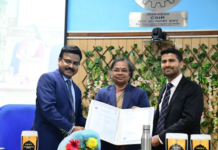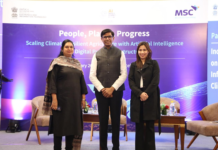In 2019, the country’s food regulator, the Food Safety and Standards Authority of India (FSSAI), made progress in the use of advanced technologies for food testing. Several new rapid testing devices or kits for the detection of food-borne pathogens and toxins were introduced in the past year. These devices ensure the ‘faster, better, and cheaper’ real-time testing of food. Expected to become an integral part of quality assurance or quality control programs in the food industry, they will also aid surveillance and regulatory compliance work by the authority in 2020.
In 2019, FSSAI finalized the regulations for approval of rapid testing devices, kits, and methods to strengthen the food testing ecosystem in the country. FSSAI has so far approved 30 rapid food testing kits or devices under these regulations. The list is available on the FSSAI website. (provide hyperlink)
Improved testing for milk and edible oils
FSSAI is also providing these kits and devices to state governments for use by their field officers to get quicker validated results for tests conducted on various food products such as milk and edible oils, amongst others. Steps have been initiated to make the devices available on the Government eProcurement Marketplace (GeM) portal so that governments and local bodies can acquire these on their own. The FSSAI has invested over Rs 5 crore on this effort so far.
Only two out of the 30 rapid kits or devices are indigenously manufactured; the rest are imported, although many research and scientific institutions are engaged in the development of such types of equipment and instruments. The FSSAI has initiated steps so that indigenously developed kits or devices are validated and approved under the FSSAI regulations on a fast track basis. Work has begun on 30 of these kits or tools (the list is available on the FSSAI website). These were also on display at the second Eat Right Mela organized in New Delhi recently.
Pawan Agarwal, chief executive officer of FSSAI, explained that the FSSAI would spend over Rs 20 crore (approximately US$ 3 million) and procure the rapid food testing kits and devices. These would be offered to field officers through the state governments. He hoped that various states would also buy such kits or devices from the GeM portal to make them widely available with the enforcement officials. It is expected that once such kits and tools are widely used for regulatory purposes, the food industry would also begin to use them for internal quality assurance and quality control. He pointed out that there is a market potential of Rs 1000 crore for such kits or devices in India alone. He hoped that the broader use of rapid food testing kits and methods for food testing would be a game-changer for India in 2020 and build greater public confidence in food available in the marketplace.
IndiFoodBev — authentic, impactful and influential
An English-language food and beverage processing and packaging industry B2B platform in print and web, IndiFoodBev is in its third year of publication. It is said that the Indian food and beverage industries represent approximately US$ 900 billion in revenues which implies more than 20% of the country’s GDP. Eliminating the wastage on the farmside can help to deliver more protein to a higher number of the population apart from generating sizable exports. The savings in soil, seeds, water, fertilizer, energy and ultimately food and nutrition could be the most immense contribution that country is poised to make to the moderation of climate change.
To improve your marketing and grow sales to the food and beverage processing and packaging industry, talk to us. Our research and consulting company IppStar [www.ippstar.org] can assess your potential and addressable markets in light of the competition. We can discuss marketing, communication, and sales strategies for market entry and growth.
Suppliers and service providers with a strategy and budget for targeted marketing can discuss using our hybrid print, web, video, and social media channels to create brand recognition linked to market relevance. Our technical writers are ready to meet you and your customers for content.
The second largest producer of fruit and vegetables in the world is continuously expanding processing capacities and delivery systems with appropriate innovative technologies. We cover product and consumer trends, nutrition, processing, research, equipment and packaging from farm to thali. Get our 2025 media kit and recalibrate your role in this dynamic market. Enhance your visibility and relevance to existing markets and turn potential customers into conversations. Ask for a sample copy of our bi-monthly in print or our weekly IndiFoodBev eZine each Wednesday.
For editorial info@ippgroup.in — for advertisement ads1@ippgroup.in and for subscriptions subscription@ippgroup.in
Naresh Khanna – 10 February 2025
Subscribe Now











